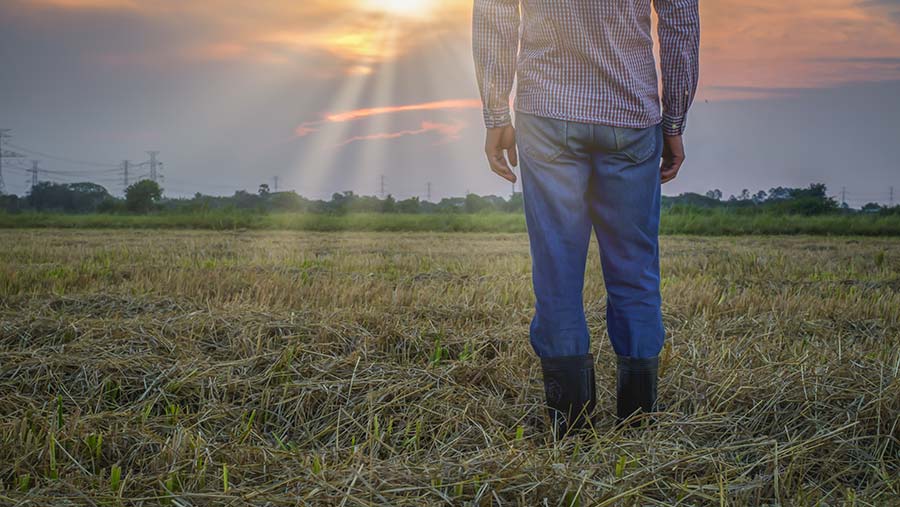Farmer numbers expected to plummet as BPS is taken away
 © Adobe Stock
© Adobe Stock A slump in the number of full-time British farmers is to be expected over the next 10 years, as cuts to farm support drive many businesses into the red.
The prediction is contained in a new report from farm business consultants Andersons, which suggests English farmers will be especially hard hit because of changes to farm policy.
Andersons estimates that the number of full-time UK farm businesses will drop from about 54,000 in 2020 to just 42,300 by 2030 – a fall of 11,700 or about 20%.
See also: Look beyond healthy harvest 2021 budget to address BPS cuts
This compares with a decline of just 2,000 full-time farm businesses, or 4%, in the previous decade, and is double the rate of contraction seen since the start of the century.
By far the biggest driver will be the loss of Basic Payment Scheme (BPS) support for English farmers, which is set to more than halve by 2024, said Andersons head of research Richard King.
“There may also be some impact from the trade deals the government is going to sign, and perhaps some contraction in numbers due to technology – but mostly it is the loss of BPS, which, for many businesses, is the profit,” said Mr King.
The introduction of new Environmental Land Management (ELM) scheme payments might partially offset the loss for some.
“But even if you submit a great [ELM] application and get the same amount of money back that you lost from BPS, you will still have less profit as delivering the public benefit is going to involve you doing something and incurring cost, whereas the BPS was pretty much all profit.”
High prices
Faced with these challenges, Mr King urged farmers to “make hay while the sun shines” – to take advantage of the current high prices for most commodities.
“We all know that such fortunes will not last, so growers should use the current profits to secure their futures for the periods when times are tougher,” he advised.
The predictions are less extreme than those made by renowned economist Sean Rickard, who last year said that “one in three” farmers could be driven out of business in just five years as a result of new government policy.
NFU vice-president Tom Bradshaw agreed that consolidation seemed inevitable given the lack of joined-up government thinking, between agriculture, trade and immigration.
“With less profit, we are likely to see smaller farmers going out of business, with consequent amalgamations,” he said.
“It depends on how government policy – including regulatory policy – develops. At the very least, we want Defra to publish its impact assessments, so we can see what they think the outcome will be.”
Fair reward
But a Defra spokesman insisted farmers would be “rewarded properly” for the work they do, while government schemes would help some retire, while paving the way for new entrants to the sector.
“We are working to make new schemes straightforward and attractive for farmers, to reduce their costs and improve their profitability,” he said.
“As we phase out direct payments, we will offer financial assistance to help farmers prepare, and invest in ways to improve their productivity and manage the environment sustainably.”
